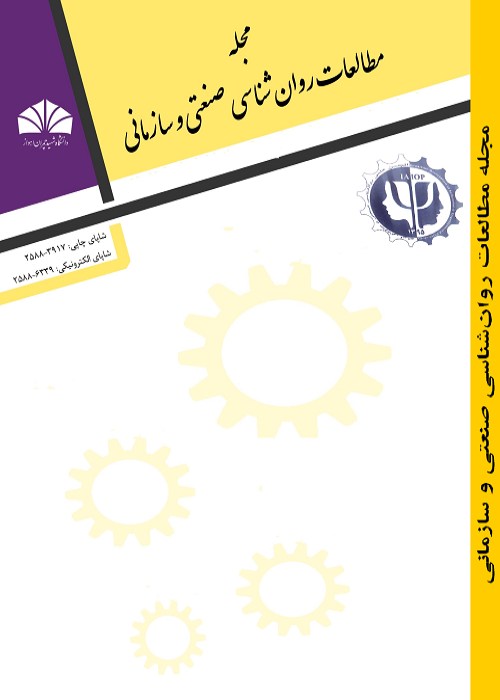Investigating the Psychometric properties of the Team Trust Scale and its Relationship with the Cohesion and Performance of Work Teams
Today, teams are recognized as an integral and central component of organizations, and the performance of organizations is increasingly and progressively influenced by the performance of teams and working groups. Accordingly, organizations and researchers alike are increasingly focused on team performance as well as individual performance on teams. At the same time, attention has been paid to the characteristics and processes within teams that can affect their effectiveness. Therefore, the present study aimed to determine the psychometric properties of the Costa and Anderson (2011) Team Trust Scale and also to investigate the relationships of trust with cohesion and performance within work teams.
The present research design is correlational through Structural Equation Modeling (SEM). The statistical population of the study included all employees of the General Department of Sports and Youth of Ardabil province in 2021. A total of 196 people were selected by census method and completed the research questionnaires. Research instruments included Team Trust (Costa & Anderson, 2011), Integrity (Jarvenpaa et al., 1998), Predisposition to Trust (Ashleigh et al., 2012), Team Cohesion (Carless & De Paola, 2000), and Team Performance (West & Markiewicz, 2004) scales. Cronbach's alpha coefficient and correlation of each item with the total score of the test were used to investigate the internal consistency and reliability of the scale.
The results showed that the scale had acceptable reliability. Several methods were used to assess the validity of the Team Trust Scale. First, confirmatory factor analysis (CFA) showed that the four-factor structure of the scale with 20 items was well-fitted. Second, the results of convergent validity showed that there was a positive and significant relationship between team trust with Integrity (r=0.67, p<0.01) and predisposition to trust (r=0.62, p<0.01). Third, the results of the predictive validity showed that team trust was able to predict team cohesion (r=0.63, p<0.01) and team performance (r=0.65, p<0.01).
The results of the present study showed that the team trust scale has necessary reliability and validity and can be used to measure this construct in Iranian employees. This scale can have many applications in research related to working groups and teams. Since it was observed in the present study that the team trust scale has appropriate psychometric properties, it is suggested that this scale be used in future research to examine and measure the construct of team trust in the workplace.
- حق عضویت دریافتی صرف حمایت از نشریات عضو و نگهداری، تکمیل و توسعه مگیران میشود.
- پرداخت حق اشتراک و دانلود مقالات اجازه بازنشر آن در سایر رسانههای چاپی و دیجیتال را به کاربر نمیدهد.


